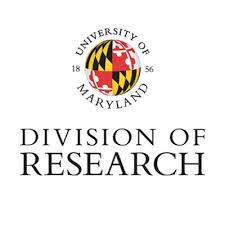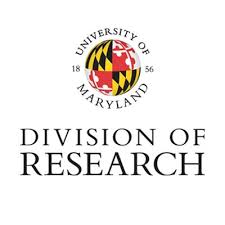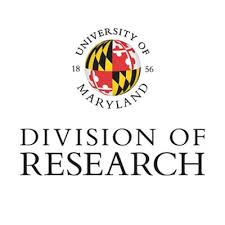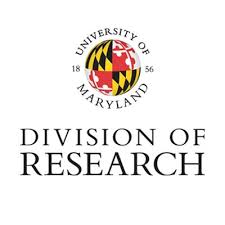The New Directions Fund aims to enable important new lines of research and creative work with high potential for impact. There are three competition tracks:
- Track A: Proof of Concept awards support researchers pursuing a new line of research or collaborative partnership to help them be competitive for external funding.
- Track B: Limited External Grant Opportunity (LEGO) awards support particularly innovative and impactful research, writing, and/or creative work in fields where external funding is scarce.
- Track C: NEW: Racial & Social Justice Research awards supports research on the underpinnings of, consequences of, and/or solutions to address systemic, institutional, and structural racism and injustice.
New Direction Proof of Concept awards are not intended to support research closely related to past work but rather to support exploratory work enabling a new line of research. This new line of research may be facilitated in part by new collaborative partnerships. Research may be basic or applied but should hold potential for future external funding.
New Direction Limited External Grant Opportunity (LEGO) awards also support new directions in faculty research, writing, and/or creative work but for fields with limited access to external funding. Proposed research should advance the body of knowledge and/or build UMD’s reputation in scientific and scholarly communities through a seminal publication, monograph, or other recognized means of discipline impact. Follow-up proposals to obtain external funding are not required though still encouraged.
NEW: Racial & Social Justice awards The Division of Research is inviting proposals relating to the underpinnings of, consequences of, and/or solutions to address systemic, institutional, and structural racism, racial and social in/justice, and other related areas. Please note that anything in Track C could fit into Tracks A & B but does not have to.
Examples of eligible projects in each of the above tracks include:
● Projects that obtain pilot data, demonstrate the feasibility of an approach or method, or contribute to the development of a prototype.
● Unique opportunities to conduct field work or research at an archive or special collection.
● Projects leading to seminal work intended for publication with an academic press.
● The development and execution of particularly innovative creative work that will be exhibited or performed in nationally or internationally known venues.
● Projects that examine the underpinnings and structures of systemic racial and social inequity and injustice, or lead to/inform antiracist policy, advocacy, education,
programming, and/or community organizing initiatives.
Support Provided:
New Directions funds can be requested at one of two levels:
● Level 1: $10,000 – $25,000 per award.
● Level 2: $25,001 – $50,000 per award.
Cost Share:
● VPR will fund 50% of the requested amount;
● The benefiting Unit(s) contribute the remaining 50% of requested funds.
Eligibility Criteria:
● Both tenured/tenure-track and professional track faculty (assistant research scientist or higher) whose full-time, home position is at UMD are eligible to apply.
● Track B only: No disciplines automatically qualify for Track B. Proposal should briefly detail the funding landscape and demonstrate the scarcity of external research funding opportunities for their discipline (and why New Directions funding is critical for the proposed effort). Contact the Research Development Office with questions.
● Faculty may only submit one New Directions proposal (as PI or co-PI) in a
given competition cycle.
● Faculty chosen as the principal investigator for past New Directions awards (or the
predecessor program “Tier 1” awards) within the last ten (10) years are not eligible to
compete to be principal investigator for New Directions awards.
Award Fund Use:
Award funds may be applied to a range of cost categories, including but not limited to:
● Collection of pilot data required for agency/private proposal submission;
● Coordination of new multidisciplinary activities that will lead to development of
a proposal for external funding;
● Graduate student support to conduct proposed research;
● Hosting of conferences which bring visibility and expertise to UMD;
● Travel of UMD personnel to conduct research and/or to disseminate research;
● Research supplies;
● Faculty summer salary – Applicants should be prepared to justify why this summer
salary is vitally important.
● Track B only: Teaching release time (requires department chair authorization). Note that these New Directions Funds do not buy out faculty salaries directly but rather are intended to be used by departments to cover the costs of bringing on a replacement instructor.
● Funds must be spent within one calendar year of receipt of funds; if the work proposed
will require a longer period of performance, the application should state this and
provide justification.
Review Criteria and Process:
All proposals will be evaluated in accordance with the following criteria; limited review
feedback will be provided to all applicants. Proposals will be assigned reviewers that may or may not have direct expertise in your area of research, so writing for a broad technical audience is crucial.
● Technical approach: Does the project develop or employ novel concepts, approaches, methodologies, tools, or technologies? (Proposals should make clear the current state of the art.) Are the conceptual framework, design, methods, and analyses adequately developed, well-integrated, well-reasoned, and appropriate to the aims of the project? Do proposed outcomes represent a new paradigm for concepts in this area of research?
● Societal relevance: What are the potential implications of this research for society? Does this study address a problem with regional, national, or global significance? Does the proposed project align with strategic goals of the department, college, or UMD?
● Alignment with the goals of the New Directions Fund award tracks:
- Tracks A and B: Does the proposal make clear how the proposed project would be a new direction of investigation for the faculty involved? Could the work be conducted without New Directions Fund support? Would it facilitate a new collaborative partnership? (Preferred but not required).
- Track B only: Does the proposal make a compelling case that, while work would be significant to the field, external funding sources are severely limited?
- Track C: Does the proposed research have the potential to lead to innovations, policy changes, or recommendations to address systemic, institutional, or structural racism; and/or transformative and/or healing impact on communities affected by racism/racial trauma? Proposals that focus on local challenges and impact Prince George’s County, the State of Maryland, or the DMV region are encouraged.
● Likely project outcomes: The proposal should clearly articulate significance or
expected impact on both the faculty member’s professional development and the larger relevant discipline. Is the effort likely to catalyze new lines of research for the PI or inspire follow-on work by others in the field? Will this effort lead to new lasting
technical capacity at the University that could enable new lines of research for others in the future? Does the proposal include robust plans to share and disseminate results through multiple platforms to various audiences? Is the project likely to result in new scholarly recognition and/or visibility for the University?
- Track A only: Do the investigators present reasonable plans to garner extramural support from specific funding agencies? Proposal should demonstrate why the proposed scope of work will improve the proposer’s ability to secure external funding, and should include a detailed plan for obtaining future support (ideally with more than one external funding program identified).
Application Process and Materials:
In addition to completing the electronic submission form, all application materials must be uploaded in one PDF file and must be submitted electronically by 11:59pm ET on the deadline date. The electronic submission form can be found at https://umd.infoready4.com/.
Application materials include:
● Universal Funding Form with department/college signatures affirming willingness to support 50% of the request.
● Project Narrative: not to exceed three single-spaced pages (plus up to one additional page of figures if needed), with one-inch margins and at least 11-point font, detailing:
- Project background and objectives (including ties to previous faculty research);
- Innovation and impact (including alignment with organizational priorities);
- Approach and research plan (listing specific tasks);
- Strategies to leverage award, optimize outcomes, and increase impact; and
- High level implementation timeline.
- Proposals should be written for a non-specialist reviewer.
● References (does not count against the page limit)
● Budget and Justification: Budget and justification should demonstrate that you have
thought through all aspects of your project and the costs associated with them.
Include any other sources of funding that will be supporting the project (if applicable)
and whether those funds are committed or pending.
- Justification should include details of unspent start-up, gift, or retention funding.
● Biosketch or CV for the submitting principal investigator and for any co-investigators if applicable (up to two pages each).
The InfoReady online submission form will also request:
- Title,
- co-investigator information (names, titles, affiliations and emails), and
- project summary (suggested length: 150 words max).
Expectations of Applicants and Awardees:
● An annual progress report must be completed for two (2) consecutive years.
● Within two years of award, at least one of the following deliverables should be
completed: a related research proposal submitted to an external funding agency, written publication submitted to a journal or book publisher, book contract secured, and/or creative work exhibited or performed.
If these expectations are not met, the faculty member’s department may not be eligible for New Directions funds for one year.








